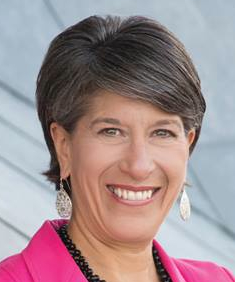Many children are exposed to abuse, neglect and family dysfunction, factors experts often refer to as toxic stress.
Why can some kids who encounter toxic stress move beyond it and lead a healthy life while others cannot? That's the question researchers set out to answer in one of the largest investigations of childhood abuse and neglect and later-life health and well-being.
The study, conducted by the Centers for Disease Control and Kaiser Permanente, is known as the Adverse Childhood Experiences (ACEs) study.
The original study included more than 17,000 health maintenance organization members from Southern California who received physical exams. The members completed confidential surveys regarding their childhood experiences (abuse, neglect and family dysfunction including divorce, incarceration, substance abuse and mental health issues) and current health status and behaviors.
Researchers found that exposure to adverse childhood experiences hinders the ability to form stable and healthy adult relationships. Plus, those experiences increase risk for experiencing substance abuse, depression, cardiovascular disease, diabetes, cancer and premature death.
Conversely, healthy relationships in the home, school and community nurture a child's physical and emotional growth. In short, children need these types of relationships from birth forward in order to thrive and become productive adults.
According to the U.S. Department of Justice, of the 73 million children living in the United States, a staggering 50 percent of them will experience violence, abuse, crime and psychological trauma before they turn 18.
The National Survey of Children's Health, conducted by the U.S. National Center for Health Statistics, surveyed parents of 95,677 children 17 and younger. It asked whether their child had ever seen or heard "any parents, guardians or any other adults in the home slap, hit, kick, punch or beat each other up."
The exposure rate for children living with their two married biological parents was 19 out of every 1,000 children. For children living with a divorced or separated mother, the rate of exposure was seven times higher (144 children per 1,000). These comparisons are adjusted for differences across age, sex, race, family income, poverty status and parents' education level.
In 2012, Tennessee conducted its own ACEs survey through the CDC to see how adverse childhood experiences affected the state's general population. It found that about 42 percent of the population experienced two or more ACEs and that one in five Tennessee residents has experienced at least three categories of ACEs. Emotional abuse, substance abuse and parental separation or divorce are the most common adverse experiences in this state.
In May, Chattanooga has a unique opportunity to learn more about adverse childhood experiences and their impact on education, the workplace and throughout our community at the ACEs Community Summit, part of Building Strong Brains, Tennessee's ACEs Initiative. Attendees can learn how to help create safe and stable homes for children, recognize the signs of ACEs in adults and learn how to promote healing for those who have been exposed to toxic stress.
First lady Crissy Haslam, who has been instrumental in creating awareness of ACEs, will attend the summit. Her goal is to help make Tennessee one of the first states to launch a comprehensive public policy shift that focuses on preventing ACEs in young children before they are exposed to ongoing "toxic stress" that increases taxpayer and community costs.
Dr. Pat Levitt, the Simms/Mann Chair in Neurogenetics at the Institute for the Developing Mind, Children's Hospital in Los Angeles, will be the keynote speaker.
The free summit is scheduled from 5:30 to 7 p.m. Tuesday, May 2, at Memorial Auditorium, 399 McCallie Ave. You can register at unitedwaycha.org/ACES.
We all share responsibility for the well-being of children in our community, and we can promote healthy child development together by helping to create safe, stable, nurturing relationships and environments that kids need. Mark your calendar and plan to attend the summit, because families, companies, churches, nonprofits, agencies and other community organizations can truly benefit from learning about the impact of ACEs.
Julie Baumgardner is president and CEO of family advocacy nonprofit First Things First. Contact her at julieb@firstthings.org.

